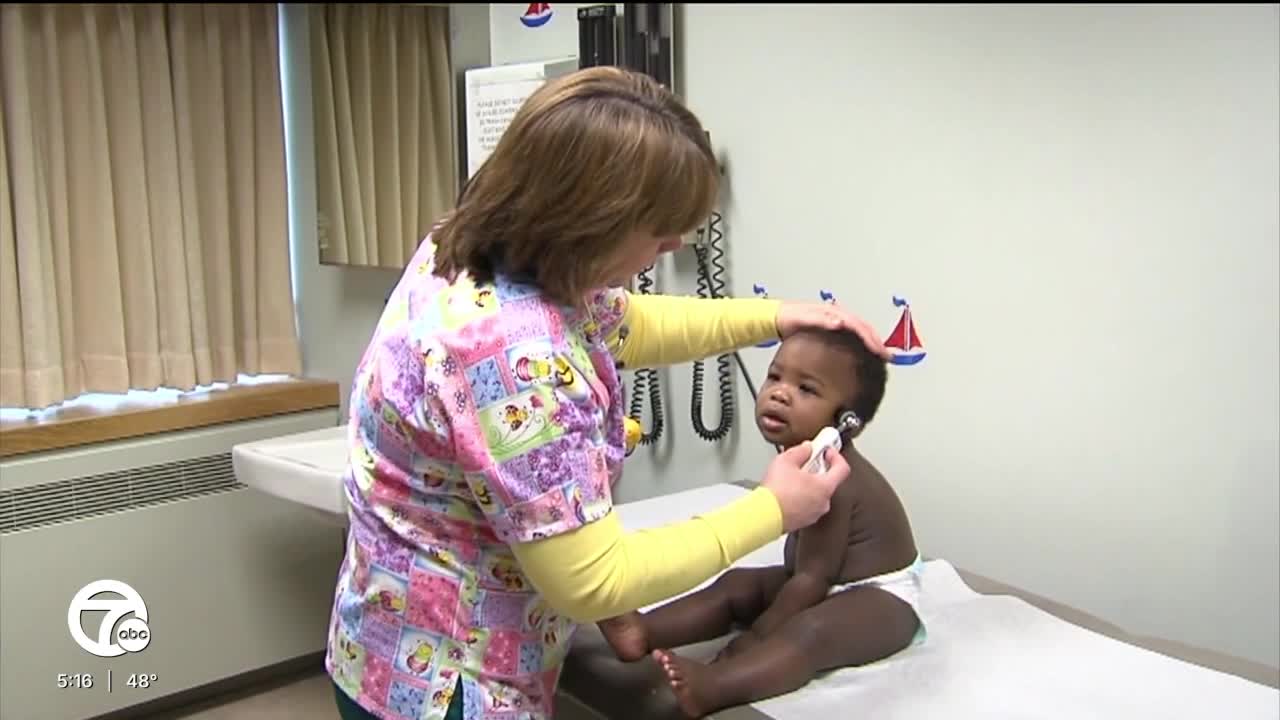(WXYZ) — In today’s Health Alert, as we enter cold and flu season, many parents are concerned about whether they should treat their child’s fever. When should parents worry?
A fever is a common sign of illness and actually one of the body’s natural ways to fight infection. When a virus or bacteria enters the system, the body raises its core temperature to make it harder for those germs to survive.
Now, in most healthy children, the body is pretty good at keeping that temperature in a safe range.
As a dad of four kids, I know how stressful it can feel when your child’s temperature spikes. But what matters most is how your child looks and acts. If they’re alert, fairly active, and drinking fluids, you can usually let the fever run its course. But if they look unwell, are listless, acting cranky, and not eating or drinking, that’s when you may want to help bring the fever down.
A fever can cause them to lose fluids faster. And that can lead to dehydration. Signs include a dry mouth, no tears when crying, or fewer wet diapers.
Acetaminophen - that’s the active ingredient in Tylenol - is one of the most common and effective ways to bring down a fever or ease pain. It works by changing how the body senses pain and by helping cool it down.
Now, the American Academy of Pediatrics says there’s no credible evidence linking acetaminophen to autism in children or during pregnancy. They emphasize it’s safe when dosed correctly and used under a pediatrician’s guidance.
Typically, acetaminophen can be given every four to six hours as needed, but no more than four doses in 24 hours. And never mix it with any other medicine that contains acetaminophen. Be sure to offer plenty of fluids and keep them comfortable - but don’t overdress them or try cold baths or ice packs.
Babies younger than 12 weeks shouldn’t be given acetaminophen unless their doctor says it’s ok. Parents should call the doctor if their infant is under three months and has a fever over 100.4 degrees. The same goes for any child with a fever over 104, or who looks seriously ill, unusually sleepy, or very fussy.
I tell parents all the time - treat the child, not just the fever. And of course, if you ever have questions or concerns, it’s best to reach out to your pediatrician.
This Week on the Dr. Nandi Show

More Americans are choosing a vegan lifestyle - and for many, it’s about more than just food. Dr. Partha Nandi, MD, explores what drives people to go vegan and the health benefits that can come with it. Guest Jeffery Shillman shares how a family history of heart disease inspired him to make the switch and how it’s changed his cholesterol, energy, and overall well-being. Cardiologist Dr. Joel Kahn joins Dr. Nandi to break down the real advantages, potential nutritional risks, and practical tips for anyone thinking about making the move to a vegan diet. Tune in on Sunday, November 9th at 5 PM.




